If your cat is only pooping in the litterbox and not peeing, it could be a sign that something is wrong. Cats usually go to the bathroom in separate areas because they want to avoid contact with their urine and feces.
In this blog post, we will discuss some of the possible causes of this problem and how you can help your cat get back to normal bathroom habits!
- Key Takeaway
- My Cat Is Pooping In The Litter Box But Not Peeing – Here’s Why
- 1. The cat may not have been properly trained to use the litter box
- 2. The litter box may be dirty and the cat does not want to use it
- 3. The box may be too small for the cat or it may not be deep enough
- 4. The cat may be ill or have a medical condition that is causing it to pee outside the litter box
- 5. The location of the litter box might not be ideal for the cat
- What To Do If Your Cat Is Pooping Outside The Litter Box
- Can Kidney Disease Cause Loss of Bladder Control in Cats?
- How Can I Make My Cat’s Litter Box More Welcoming?
- FAQs
- Q: How can I stop my cat from pooping outside the litter box?
- Q: What is the best litter to use for my cat?
- Q: Can a medical problem cause my cat to poop outside the litter box?
- Q: How many litter boxes should I have for one cat?
- Q: How can I encourage my cat to use the litter box?
- Q: How do I clean the litter box properly?
- Q: What should I do if my senior cat suddenly starts pooping outside the litter box?
- Conclusion and final thoughts
If your cat is pooping in the litter box but not peeing, it could be due to a variety of reasons including urinary tract issues, behavioral problems, or medical conditions such as arthritis, which should be addressed by a vet.
My Cat Is Pooping In The Litter Box But Not Peeing
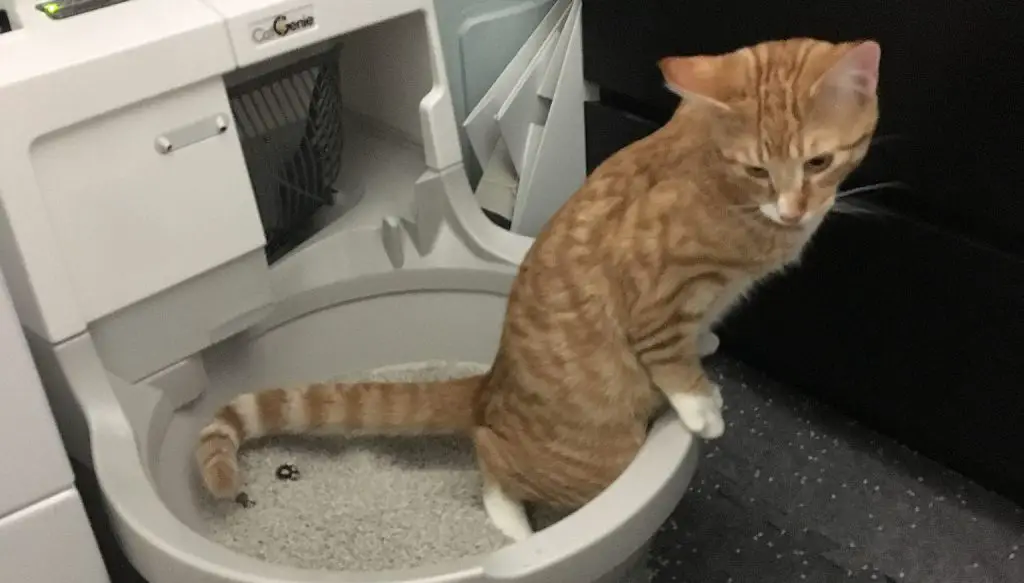
If your cat is pooping in the litter box but not peeing, there could be a few different causes. The problem could be behavioral or medical.
Here are the most common reasons why a cat is pooping in the litter box but not peeing:
1. The cat may not have been properly trained to use the litter box
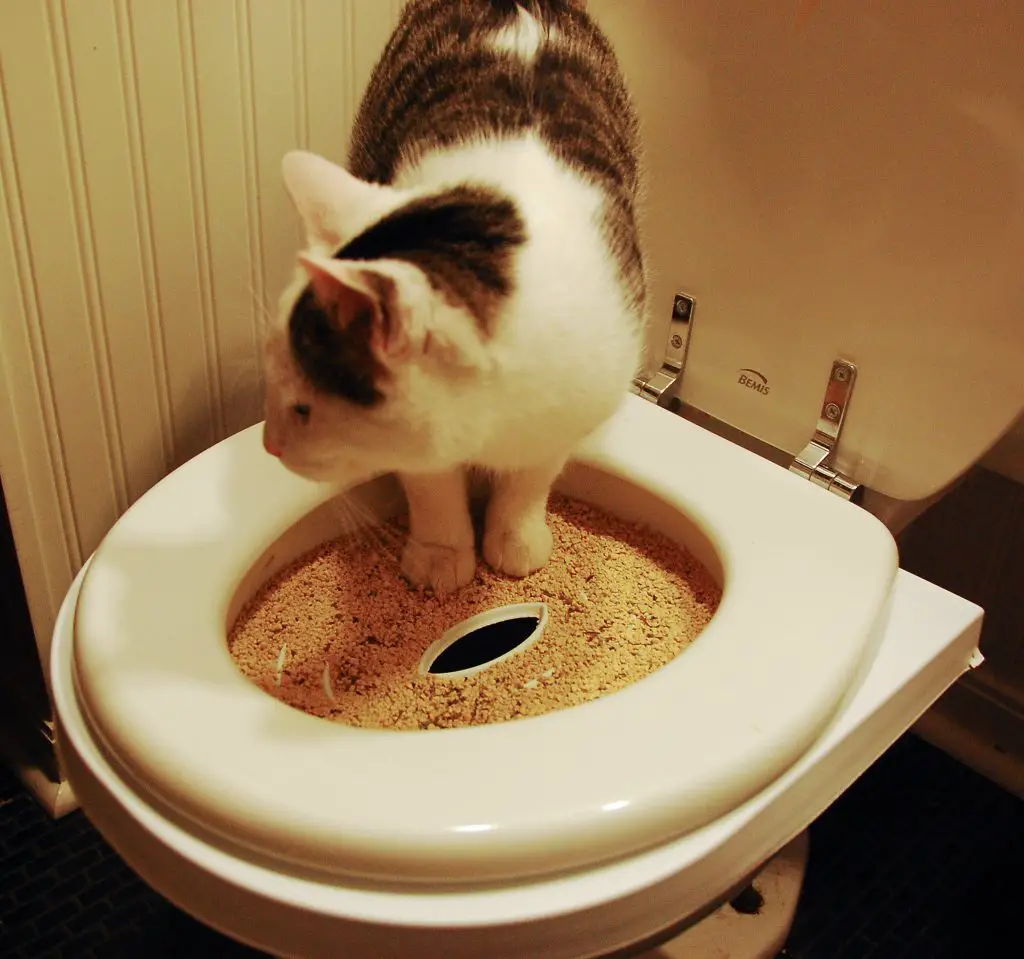
One of the most important things you can do for your cat is to train it to use the litter box. This will keep your cat healthy and save you a lot of cleanups. However, some cats are not properly trained and will not pee in the litter box, but will poop in it.
Training a cat to use a litter box is not as difficult as it may seem. There are a few key things to keep in mind. First, it is important to provide the cat with a litter box that is the right size and shape.
Second, the litter should be of good quality and be regularly changed.
Third, the litter box should be kept in a clean and accessible location. If these basic requirements are met, then most cats will have no problem using the litter box.
However, there are some cats who may still need a little bit of help. If a cat consistently urinates outside of the litter box, then it may be necessary to consult with a veterinarian or animal behaviorist to determine the root of the problem and find a solution.
2. The litter box may be dirty and the cat does not want to use it
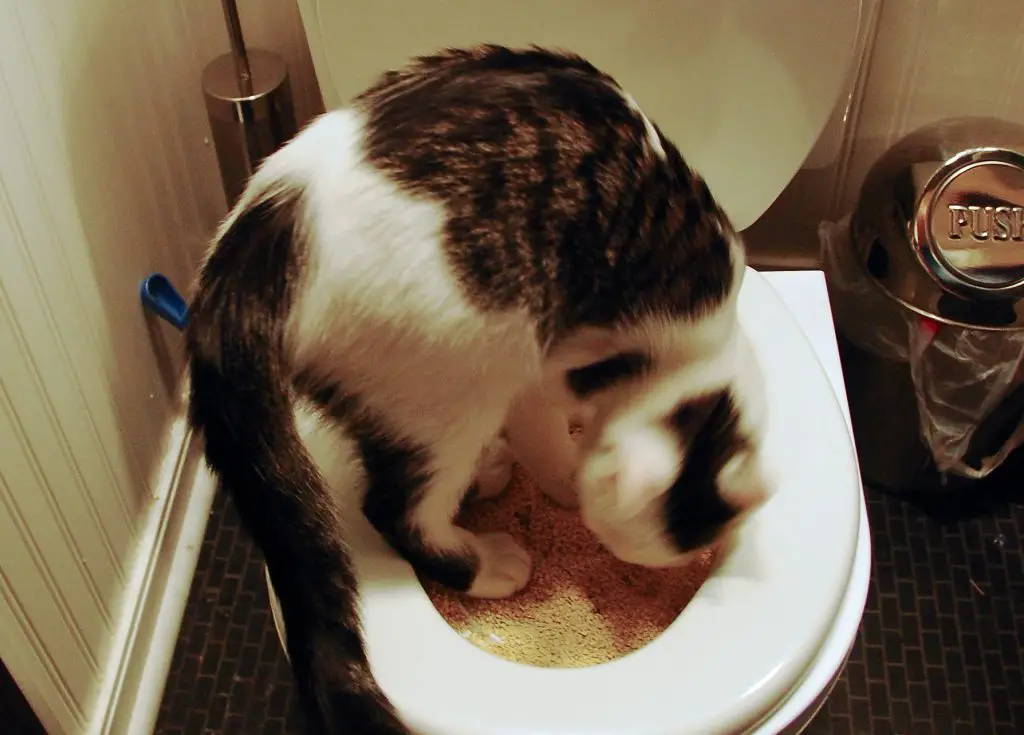
A clean litter box is essential for a healthy cat, and if the box is not clean, the cat may refuse to use it. There are a few reasons why a cat may decide that the litter box is too dirty and will meow as a protest.
First, the litter may be too shallow. If the litter is too shallow, the cat’s paws may become dirty when they dig. They may prefer to avoid the litter box altogether.
Second, the litter may not be changed often enough. Cats are clean animals, and they prefer a clean litter box. If the litter is not changed often enough, the cat may decide that it is too dirty and refuse to use it.
A cat’s litter box should be cleaned out on a regular basis. A dirty box can lead to a number of problems.
For one thing, it can cause the cat to develop a urinary tract infection. In addition, the cat may start to associate the litter box with the unpleasant experience of having to wade through dirty litter, and as a result, begin to avoid it altogether.
This can lead to accidents around the house, which are not only unsanitary but also frustrating for the owner.
The best way to prevent this from happening is to scoop the litter box daily and perform a complete cleaning at least once a week. By taking these simple steps, you can help keep your cat’s litter box clean and inviting – and help avoid any future accidents.
3. The box may be too small for the cat or it may not be deep enough
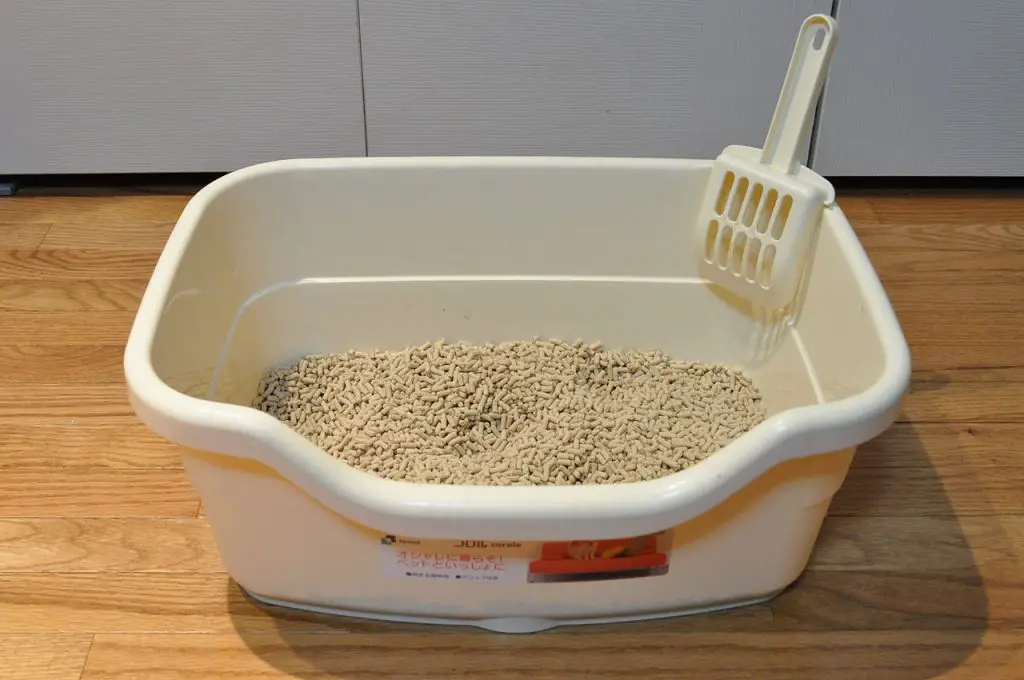
Many cat owners have experienced the frustration of a feline who seemingly refuses to use the litter box for peeing. One common reason for this behavior is that the litter box is too shallow. Cats are naturally clean animals, and they prefer a litter box that allows them to cover their pee completely.
While a shallow litter box may be fine for some cats, others will refuse to use it, resulting in messes outside the box.
A shallower box may not provide enough coverage, leading the cat to look for another spot to relieve itself. In addition, a shallow box is more likely to become soiled, which can further deter a cat from using it.
If your cat is acting out of the litter box, be sure to check the depth of the litter before considering other potential causes. A simple fix may be all that is needed to solve the problem.
4. The cat may be ill or have a medical condition that is causing it to pee outside the litter box
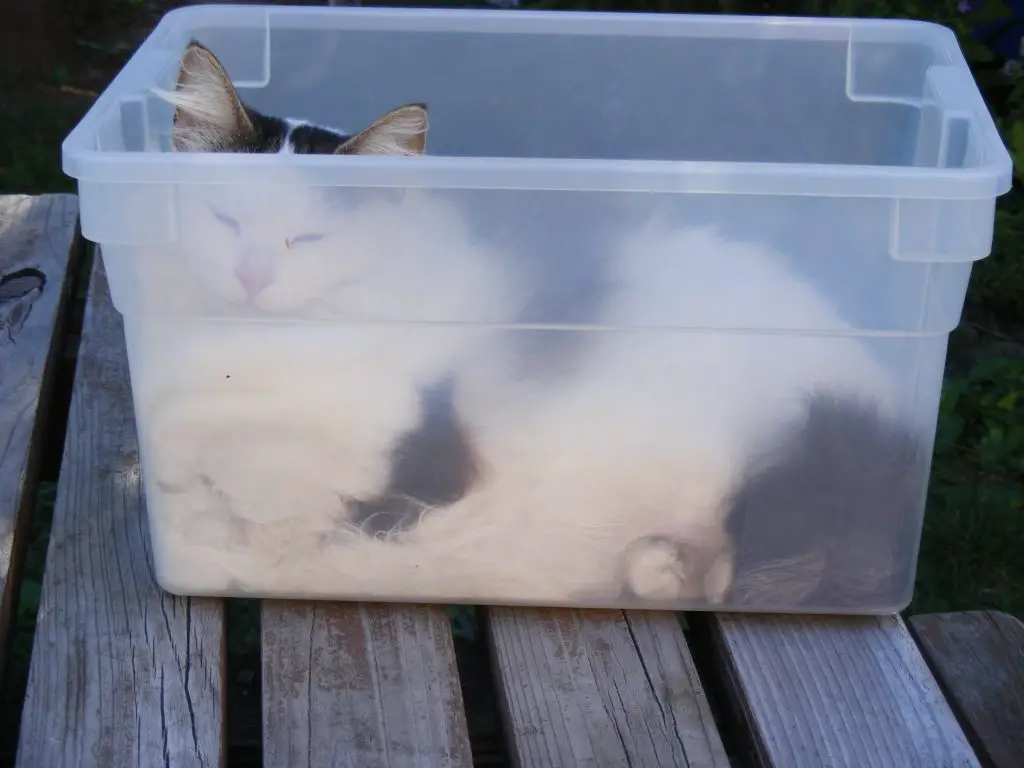
It’s not unusual for cats to develop a dislike for their litter boxes, but in most cases, there’s a specific reason for their aversion. Common causes include a change in the type of litter, the location of the box, or even the cleanliness of the box itself.
However, sometimes a cat’s aversion to the litter box can be due to a medical condition. Urinary tract infections, bladder stones, and kidney disease are all possible causes of litter box avoidance. If your cat suddenly starts avoiding the litter box, it’s important to take them to the vet to rule out any medical problems.
If your cat suddenly starts urinating outside of the litter box, it could be a sign of a medical condition. Cats can be finicky creatures, and even a small change in their environment can cause them to feel anxious or stressed.
Only once a medical condition has been ruled out should you start looking at other possible causes. With a little patience and some trial and error, you should be able to figure out what’s causing your cat’s aversion to the litter box and find a solution that works for both of you says Floppy Cats.
5. The location of the litter box might not be ideal for the cat
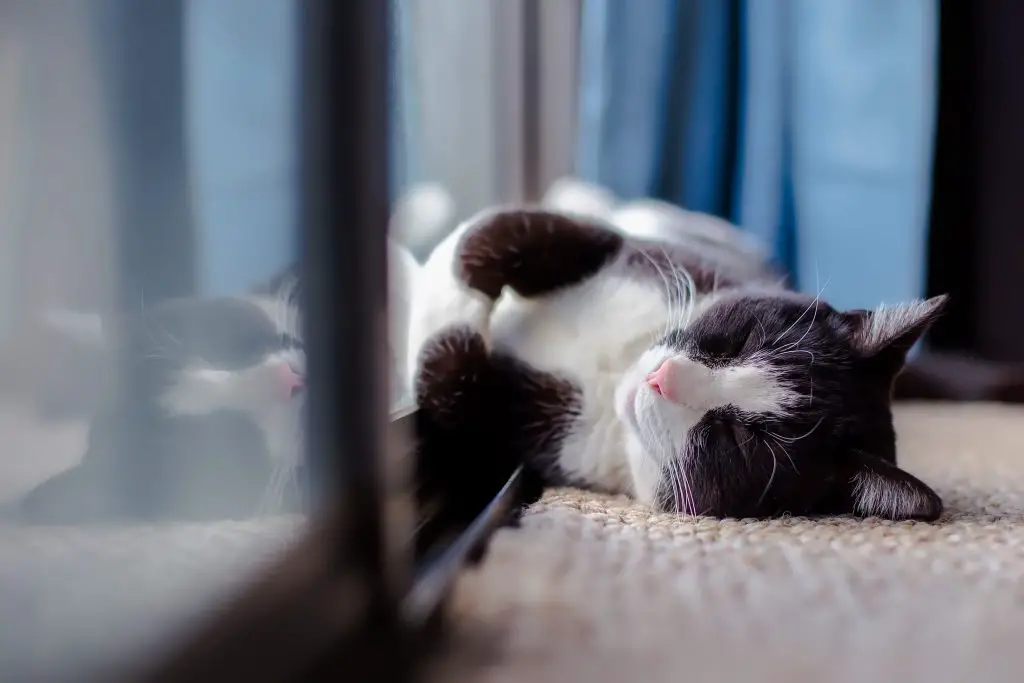
There are a variety of reasons why a cat might refuse to use a litter box, and one of the most common is the location of the box. If the box is in a busy area or somewhere that makes the cat feel uncomfortable, she may be reluctant to use it.
Cats are very clean creatures and they prefer to do their business in a private, secluded spot. If the litter box is located in a busy area of the house, your cat may feel too exposed and choose to go elsewhere. Similarly, if the litter box is too close to their food or water dishes, they may avoid it out of fear of soiling those areas.
In addition, the litter itself can be a factor. If the litter is too shallow or too deep, the cat may not feel comfortable using it.
Finally, the type of litter can also be a problem. If the cat doesn’t like the smell or texture of the litter, she may avoid using it. Ultimately, if you want your cat to use her litter box, it’s important to choose a location that she feels comfortable with and to use a type of litter that she enjoys.
How To Encourage a Cat To Pee In The Litter Box
To encourage a cat to pee in the litter box, it’s essential to maintain cleanliness, place the box properly, use attractive litter, and provide positive reinforcement for correct usage.
Maintain Cleanliness
Scoop the litter box at least once a day, or ideally, several times per day. This ensures that the kitty always has a fresh box which is more inviting for them to use. Regular cleaning not only keeps the box appealing but also helps you monitor your cat’s health through their waste.
Proper Placement of the Litter Box
The location of the litter box is crucial. It should be placed in a quiet, low-traffic area where your cat can have some privacy. Make sure the box is easily accessible and there’s nothing obstructing the entrance.
Use of Attractive Litter
Different cats have different preferences when it comes to litter. Experiment with various types such as clay, silica, or biodegradable options, and see which one your cat prefers. Also, consider using unscented litter as some cats might be put off by the smell of scented ones.
Positive Reinforcement
Whenever your cat uses the litter box correctly, reinforce this behavior with praises, petting, or treats. This will make your cat associate the act of using the litter box with positive experiences, thereby motivating them to keep using it.
Regular Vet Check-ups
If your cat continues to pee outside the litter box despite these measures, it could be a sign of a health issue. Regular vet check-ups can help identify any potential problems early and ensure your cat remains healthy and comfortable.
What To Do If Your Cat Is Pooping Outside The Litter Box
If your cat is pooping outside the litter box, it could be due to a variety of reasons including health issues, cleanliness of the litter box, or their preference for certain types of litter, and you should address these potential causes while also seeking veterinary advice.
Rule Out Underlying Health Issues
Firstly, it’s important to ensure that there are no underlying health issues causing this behavior.
Cats may start defecating outside their litter box due to medical conditions such as urinary tract infections, constipation, or other gastrointestinal problems. If your cat has suddenly started this behavior, it’s advisable to take them to the vet for a check-up.
Keep a Clean Litter Box
Cats are naturally clean animals and may refuse to use a dirty litter box. It’s recommended to scoop the litter box daily and change the litter regularly to maintain its cleanliness. If the litter box becomes too dirty, your cat may start to eliminate elsewhere.
Consider Buying a New Litter Box
Sometimes, the problem might be with the litter box itself. Your cat might find it too small, too large, or not private enough. Try different types of litter boxes to see if your cat has a preference. Additionally, some cats might not like covered litter boxes, while others prefer them for the added privacy. Check out the Top 9 Best Cat Tree With Litter Box Enclosures.
Provide an Adequate Number of Litter Boxes
The general rule of thumb is to have one more litter box than the number of cats in the house. This ensures that each cat has its own box and reduces territorial disputes.
Try Different Types of Litter
Just like humans, cats have preferences too. Some cats might prefer unscented litter over scented, or clumping over non-clumping. Experiment with different types of litter to see what your cat prefers. If your cat starts using the litter box consistently after a change in litter, you’ve likely found the culprit.
Can Kidney Disease Cause Loss of Bladder Control in Cats?
Yes, kidney disease can cause loss of bladder control in cats as the impaired kidneys can no longer concentrate urine, leading to increased urine output and potentially resulting in incontinence.
Kidney disease in cats is a serious condition that can lead to various symptoms, including increased output of urine and in some cases, incontinence.
This happens because the kidneys, impaired due to the disease, lose their ability to concentrate urine effectively. As a result, the cat produces a higher volume of urine and may struggle to control its bladder, leading to accidents outside the litter box.
Additionally, cats with kidney disease may also exhibit other symptoms such as increased thirst, vomiting, weight loss, dull or sunken eyes, inability to walk, and body odor.
The condition can also result in loss of muscle tissue due to the loss of protein through the urine, further complicating the cat’s overall health status.
How Can I Make My Cat’s Litter Box More Welcoming?
To make your cat’s litter box more welcoming, you should consider factors such as its cleanliness, location, size, and the type of litter used.
Maintain Cleanliness
Cats are naturally clean animals and prefer a clean environment for their waste. Therefore, you should scoop the litter box daily and change the litter regularly. A dirty litter box can deter your cat from using it, leading them to find other places to relieve themselves.
Choose an Appropriate Location
The location of the litter box plays a crucial role in its appeal. Cats prefer a quiet, low-traffic area where they can do their business in peace. Avoid placing the litter box near noisy appliances or areas with high foot traffic. Also, ensure that the box is easily accessible.
Select the Right Size
The size of the litter box should be appropriate for your cat. It should be large enough for them to turn around comfortably. If the box is too small, your cat might feel cramped and avoid using it. On the other hand, a litter box that is too large might be difficult for a kitten or an older cat to climb into.
Use Cat-Friendly Litter
The choice of litter can also affect your cat’s willingness to use the box. Some cats might have preferences for certain types of litter over others.
Generally, unscented clumping litter is a safe bet as it is soft on the paws and easy for cats to dig in. However, you might need to experiment with different types of litter to find out what your cat prefers.
Provide Enough Litter Boxes
Especially in multi-cat households, there should be sufficient litter boxes to prevent territorial disputes. The general rule of thumb is to have one more litter box than the number of cats in the house.
Can an Urinary Tract Infection Cause a Cat To Pee Outside The Litter Box?
Urinary tract infections can indeed lead to a cat peeing outside the litter box, as the discomfort and urgency associated with this condition can disrupt regular litter box habits.
When a cat has a urinary tract infection (UTI), it experiences a frequent and urgent need to urinate.
This urgency might not give them enough time to reach their litter box, resulting in accidents around the house.
Additionally, the discomfort or pain during urination might cause them to associate the litter box with these negative experiences, leading them to avoid it altogether.
It’s important to note that inappropriate urination can be a sign of various health issues, including UTIs, so if your cat starts peeing outside the litter box, a visit to the vet is recommended to identify the underlying cause and start appropriate treatment.
FAQs
Q: How can I stop my cat from pooping outside the litter box?
A: To stop your cat from pooping outside the litter box, you can try the following: – Ensure the litter box is clean and properly maintained. – Experiment with different types of litter to see which one your cat prefers. – Provide multiple litter boxes in different locations. – Place the litter box in a quiet and accessible area. – Use positive reinforcement and rewards when your cat uses the litter box correctly.
Q: What is the best litter to use for my cat?
A: The best litter for your cat will depend on their preference. Some cats prefer clumping litter, while others prefer non-clumping litter. It is also important to choose a litter that is unscented, as some cats may be sensitive to strong odors.
Q: Can a medical problem cause my cat to poop outside the litter box?
A: Yes, a medical problem can cause cats to poop outside the litter box. Conditions such as urinary tract infections, constipation, or gastrointestinal issues can make cats uncomfortable and result in litter box avoidance. If your cat is consistently pooping outside the litter box, it is important to have them checked by a veterinarian.
Q: How many litter boxes should I have for one cat?
A: It is recommended to have at least one litter box per cat, plus one extra. So, if you have one cat, you should have two litter boxes. Having multiple litter boxes ensures that your cat always has access to a clean and available litter box.
Q: How can I encourage my cat to use the litter box?
A: To encourage your cat to use the litter box, you can try the following: – Ensure the litter box is clean and free of any odors. – Place the litter box in a quiet and accessible area. – Experiment with different types of litter to find one your cat prefers. – Use positive reinforcement and treats when your cat uses the litter box correctly. – Avoid punishing or scolding your cat for accidents outside the litter box.
Q: How do I clean the litter box properly?
A: To clean the litter box properly, you should scoop it daily to remove any clumps or waste. Once a week, empty the entire litter box and wash it with mild soap and water. Avoid using strong chemicals or perfumes, as they may discourage your cat from using the litter box.
Q: What should I do if my senior cat suddenly starts pooping outside the litter box?
A: If your senior cat suddenly starts pooping outside the litter box, it is important to have them checked by a veterinarian. Older cats are prone to various health issues, including arthritis or digestive problems, which can affect their litter box habits. The vet can provide guidance and recommend appropriate steps to address the issue.
Conclusion and final thoughts
Cat urinary issues can be frustrating and difficult to resolve. However, by understanding the root cause of your cat’s discomfort and following a few simple steps, you can help to ensure that your pet’s potty time is more successful!
Keeping an eye on litter box cleanliness and regularly scheduling vet check-ups will go a long way in keeping your cat healthy and happy.
With a combination of patience, love, and the right tools, you’ll soon have your furry friend happily peeing and pooping in its litter box again!




